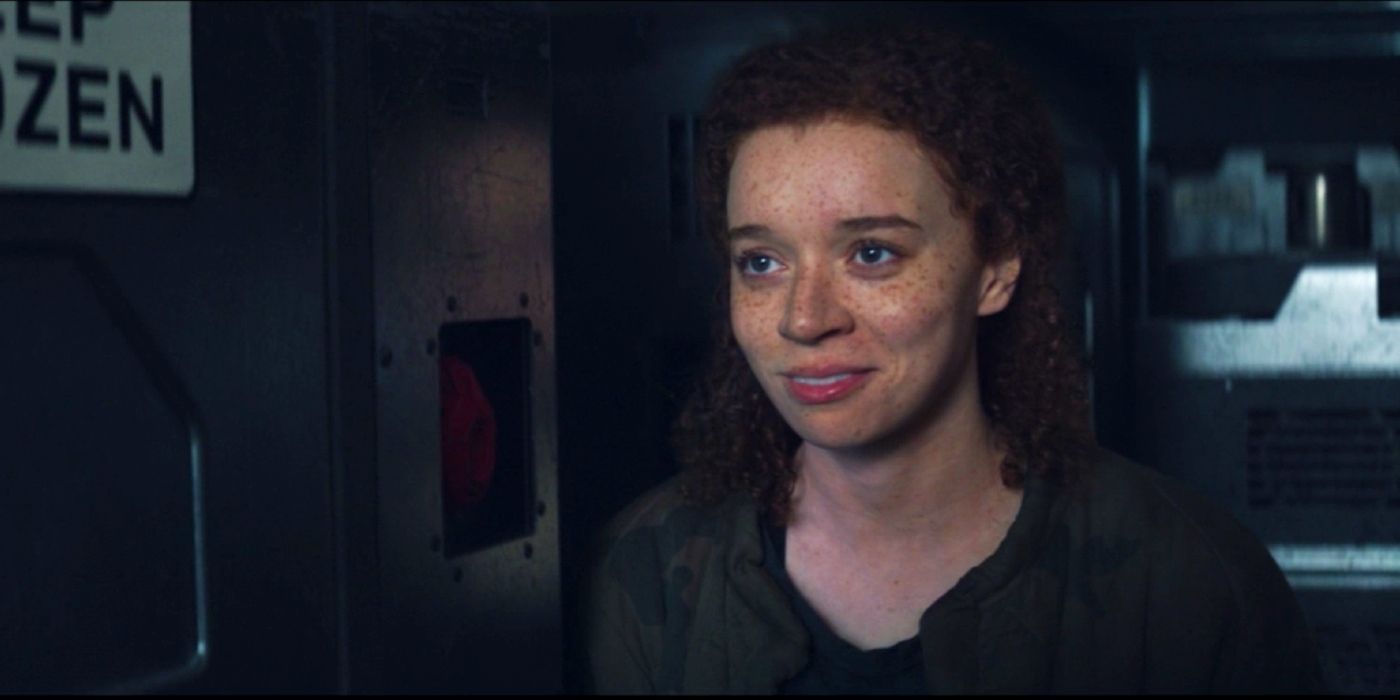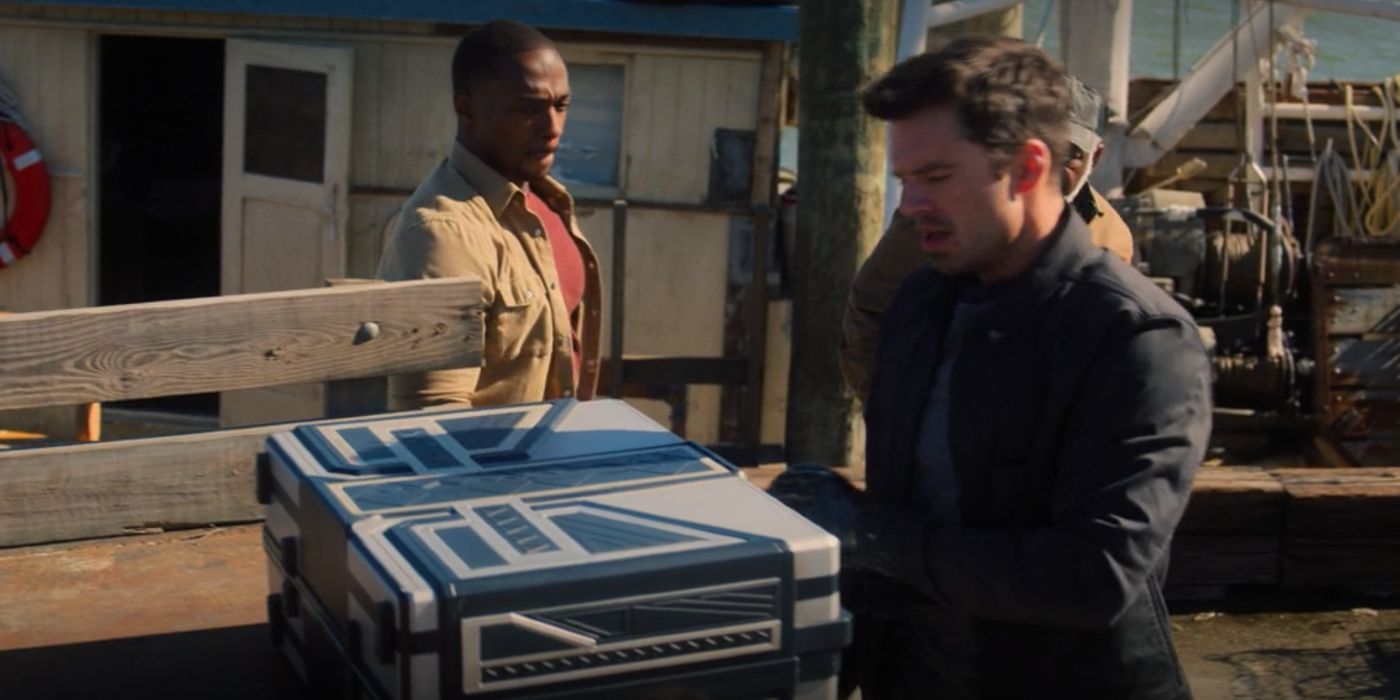The Falcon & the Winter Soldier was the latest success story for Marvel Studios, transforming Sam Wilson into the new Captain America and seeing Bucky Barnes finally confront all the ghosts of his past. Falcon & Winter Soldier became Disney+'s most-watched series premiere, testament to the strength of the brands involved in the show - Captain America, Falcon, and the Winter Soldier.
The modern MCU is a transmedia initiative unlike anything that's been seen before, with character arcs moving from the big screen to the small screen and back again. In the case of Falcon & Winter Soldier, the series picked up from the events of Avengers: Endgame and - it's now known - set up Captain America 4. In the wake of Falcon & Winter Soldier's series finale, Marvel has hired the show's head writer and showrunner Malcolm Spellman and staff writer Dalan Musson to continue the story in the next Captain America movie. The fact these stories will continue, with the same people involved, is testimony to Marvel's satisfaction with Falcon & Winter Soldier.
With Falcon & Winter Soldier complete, director Kori Skogland spoke to Screen Rant about Sam Wilson, the aerial action sequences, and whether or not Karli Morgenthau - leader of the Flag-Smashers - could have been redeemed.

I thought I'd start out by focusing on the general production. The action sequences were absolutely phenomenal, especially those involving Sam taking to the skies. How did you shoot those stunning aerial battles?
Kari Skogland: He is actually flying in a form. We should a lot of the elements: the helicopters, the people in the helicopters, so a lot of it is live. A surprising amount of it, in terms of people jumping out of planes. I studied a lot of extreme sports videos, like where they put the cameras. With the light cameras now, with the Go-Pro versions of it, you can put them anywhere. Because I wanted it to have a very experiential quality, so the guys in the squirrel suits had cameras all over them. They were really flying, and we really captured the moments that you see.
Same with Sam. We put cameras right here and all over. My goal was to not only feel like we were experiencing flying with them, but to make them so exciting that we had the best of the flying that we could possibly have. To outdo all flying done before; that was the goal.
Particularly in the finale, those action scenes really showed off all the capabilities of Sam's suit. Was there anything you had to cut from that at all?
Kari Skogland: No, what we wanted to do is make the last sequences a combination of his suit and, you'll notice, his skills when he was working out and doing the flips and all that. We wanted to bring to this new Cap stuff that we hadn't seen him do before, and with the shield, what it could do that was new and different. Stuff that we hadn't seen Steve ever do.
There was a combination of an acrobatic kind of quality and martial arts, as well as the shield having abilities within the Vibranium of it, that really was more a skill set. The shield itself has not changed, but the skill set of Sam and what he could bring to it has - because he's not a super soldier, so he's not going to bring strength to it. He's going to bring a different kind of skill set.
Focusing in on Sam, one thing I absolutely loved was how much time we spent in Sam's personal world and exploring his family background. How did you design that environment and make that family dynamic work so well?
Kari Skogland: Anthony is actually from Louisiana, so setting it there gave us a lot to draw from. It was a bit of a happy accident, I suppose. But also giving him a family legacy, a family homestead and family history, allowed us to tap into the African-American story and the history of what that is.
When he can't get a bank loan, even though his father was embedded in the community, all this is drawn from actual storylines and actual truth. It allowed us to play the history as much as we possibly could within his personal storyline. That was, I think, why it feels so authentic - because it truly is authentic. And of course, having a boat that we could fix up and that was a family legacy, was also important. As Sam says to his sister, "I'm so glad you don't want to sell it. This is just something we have to get right."

One thing that everybody looks for in Marvel TV shows and movies: is there any comic book hint or easter egg that hasn't been caught yet?
Kari Skogland: I think just look at Madripoor.
The Flag Smashers were a fascinating group, because philosophically they had something of a point. You could see where they were coming from. I was hoping for a redemption arc for Karli and was absolutely devastated with how that ended. What made you decide to take that direction with her story?
Kari Skogland: Because I think she's irredeemable at some level. She's an extremist that he keeps reaching out to, and she keeps making a choice that she can't come back from. But in the moment, where her redemption comes from - and by the way, he wouldn't have killed her. It was Sharon who killed her, and Sharon had an ultimately heinous agenda, which he's not aware of.
Seemingly, Sharon took an opportunity to kill her, because it did definitely look like she was going to pull the trigger; that Karli was going to make yet another terrible choice. So, that walks a line of, "Was she going to?" or "Would he have gotten through to her?" I think the slight moment of redemption that she gets before she dies is when she says, "I'm sorry."
He was right, and she was right. She's right in her cause, not in how she did it. She became radicalized, and that became toxic. He was right to believe in her, that in the very end moment, she did see that she was wrong. And she paid for it with the highest price, which was her life. And maybe therefore killed, not just her, but the movement. So, it's now up to him to carry the torch of the right movement. Which is what he does. He picks it up, and he talks to the Senator. "You got to do better."
He says to all the GRC, "You've got the power to move borders, to do all the things that she was asking. Now, what are you gonna do with that power?" Because what she was asking for was legitimate, but how she did wasn't. I think, in a way, that's him taking on the truth of what she wanted - which, of course, is reflective of our communities. Refugees, imperialism, all the things that we are facing right now. What are we going to do with that? What's the moral imperative? Where do we sit with all that, as a worldwide community?
Knowing the reactions to the series, with the benefit of hindsight, is there anything you think you could have changed or done more or less of?
Karo Skogland: That's a loaded question. Because there's always things that are different - scenes are different, everything's different. So, I've come to a place where I embrace where we have ended up as being where we needed to be. I can honestly say I have no regrets on where the show that we made has landed.
I think all the themes that I wanted to touch on, and all the performances I wanted to get, we got. Did we get them the exact way I thought we would? Not always, but that doesn't mean I regret where we ended up. In fact, I would say it's absolutely a lot better than I could have possibly imagined.
from ScreenRant - Feed https://ift.tt/3t5X7iz


0 Comments